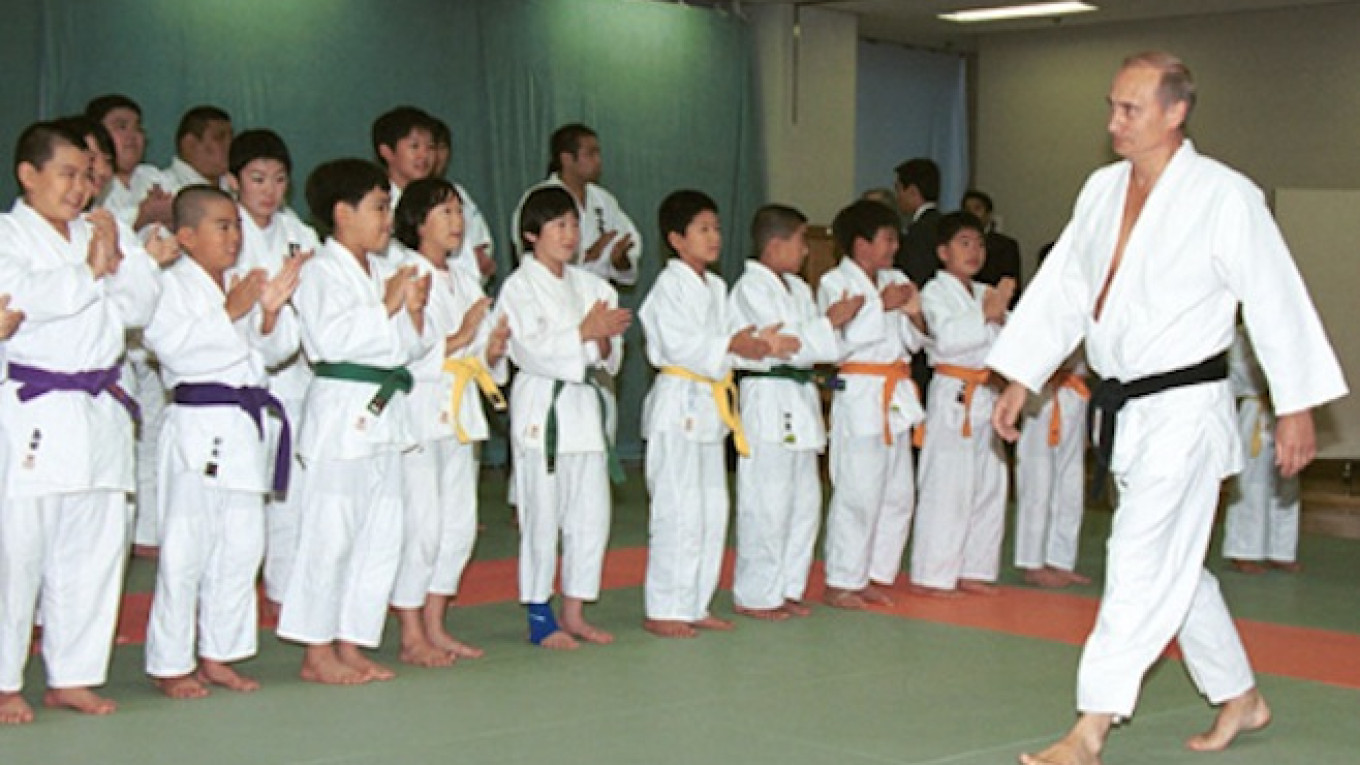After hearing the statements last week by U.S. and European officials regarding new potential sanctions against Russia, many were asking the question: What does the West want to achieve with these sanctions?
The sanctions the U.S. has levied so far have had minimal impact on the Russian economy or the Kremlin's policy toward Ukraine. At the same time, however, the presence of President Vladimir Putin's cronies on the blacklist should be welcomed. The White House gave a clear signal to the world that it is knows who is who in Russia and how closely linked these people with questionable reputations are to Putin. The only problem is that the list of cronies is incomplete. It should be expanded.
It seems that the U.S. is treating the Ukrainian crisis as a chess game. Installing a new prime minister in Crimea — with the clear support of the Russian military, as Putin himself later effectively admitted — prompted the first wave of sanctions. The Crimean referendum on March 16 prompted the second wave, and the absorption of Crimea into Russia — the third wave.
Despite the sanctions, Putin has clearly come out on top. He has:
• annexed Crimea, which satisfies his personal imperial ambitions and the aspirations of a large part of Russian society that dreams about being part of a great and powerful country.
• intimidated Russia's neighbors. According to Putin's foreign policy model, if other countries are scared of Russia, they respect it.
• unified most Russians around the government and himself by carrying out a small, largely bloodless and victorious war in Crimea. What's more, he also dealt a serious reputational blow to liberals, who were vocal in their opposition to Russia's annexation of Crimea.
• shown that in the modern world the "law of the jungle" dominates. While only the strong survive, "the weak get beaten," as Putin famously said several years ago.
• gotten sweet revenge for the Maidan protests and for the humiliation when an angry crowd toppled the legitimate president in Ukraine, the birthplace of Russian civilization.
I do not know if any advisers to U.S. President Barack Obama like to play chess, a game in which you can move only after your opponent's move. But in real life, sometimes it is not possible to determine what your opponent's move will be. If Ukrainian authorities cannot hold the planned presidential election on May 25 in most of eastern and southern regions of the country because of violence there, will this be considered Putin's latest "chess move"?
As is well known, the favorite sport of Putin is judo, not chess. Judo is based on different principles. Unlike chess, a judo fighter should not wait for the opponent's move. His strategy is to wait until he gets a chance to execute a single quick move — and then take a step back. Successful judo fighters must anticipate their opponents' actions, make a decisive, preemptive move and try to disable them.
If the U.S. wants to play chess with Russia, it will likely lose the Ukrainian gambit. The West's only chance of winning is if it is successful in beating Putin at his own game — judo. This means taking the initiative and applying much more pressure on Russian authorities. Even if this does not result in immediate victory, that would make Russian leaders more cautious and place them on the defensive, disabling them from going on the attack. In judo, this is tantamount to defeat.
Sergey Aleksashenko is a former deputy finance minister and first deputy chairman of the Central Bank.
A Message from The Moscow Times:
Dear readers,
We are facing unprecedented challenges. Russia's Prosecutor General's Office has designated The Moscow Times as an "undesirable" organization, criminalizing our work and putting our staff at risk of prosecution. This follows our earlier unjust labeling as a "foreign agent."
These actions are direct attempts to silence independent journalism in Russia. The authorities claim our work "discredits the decisions of the Russian leadership." We see things differently: we strive to provide accurate, unbiased reporting on Russia.
We, the journalists of The Moscow Times, refuse to be silenced. But to continue our work, we need your help.
Your support, no matter how small, makes a world of difference. If you can, please support us monthly starting from just $2. It's quick to set up, and every contribution makes a significant impact.
By supporting The Moscow Times, you're defending open, independent journalism in the face of repression. Thank you for standing with us.
Remind me later.


